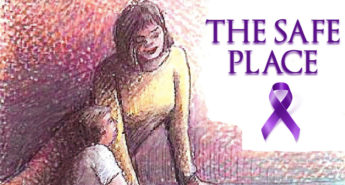 Children who grow up in a home filled with constant fighting and arguing often face significant emotional and psychological challenges. The environment of tension and conflict can deeply affect their development, changing how they see the world, themselves, and others. While each child reacts differently, there are common ways these experiences shape their behavior and thinking.
Children who grow up in a home filled with constant fighting and arguing often face significant emotional and psychological challenges. The environment of tension and conflict can deeply affect their development, changing how they see the world, themselves, and others. While each child reacts differently, there are common ways these experiences shape their behavior and thinking.
When children are regularly exposed to fighting between caregivers, they often experience heightened levels of stress and anxiety. Being at home, which should be a safe and nurturing place, becomes a source of fear and unpredictability. This can lead to children being more irritable, withdrawn, or anxious in their daily lives.
Some children may start to act out, becoming aggressive or defiant at school or with peers. This behavior is often a way to cope with the confusion and helplessness they feel. They might also mimic the behaviors they witness at home, believing that aggression and conflict are normal ways to solve problems. On the other hand, some children become overly quiet or compliant, hoping to avoid drawing attention to themselves in an attempt to maintain peace in the household.
The constant exposure to arguing and conflict can cause children to develop deeply ingrained beliefs about themselves, relationships, and the world around them. For instance, they may come to believe that conflict is an inevitable part of relationships, which can affect how they approach friendships or romantic relationships in the future.
In some cases, children learn to suppress their own emotions and needs because they see that their parents are too consumed with their own conflicts. As a result, they may grow up feeling that their feelings don’t matter, leading to difficulties in expressing themselves or seeking help when they need it. This can contribute to issues with self-esteem and emotional regulation as they mature.
Additionally, witnessing repeated arguing can give children the impression that relationships are about power and control rather than mutual respect and support. They may struggle to form healthy, balanced relationships because they’ve been conditioned to see manipulation, yelling, or emotional withdrawal as normal. This can lead to unhealthy dynamics in their own interactions later in life.
As these children grow older, they often carry the emotional scars from their experiences with them. They may struggle with trust, fearing that others will hurt or abandon them. Some might avoid conflict altogether, even when standing up for themselves would be in their best interest, because they’ve learned to associate conflict with emotional pain. Others may overcompensate by becoming overly controlling or distant in their own relationships.
In the long run, children from homes filled with fighting and arguing may have a distorted view of what a healthy relationship looks like. By recognizing behavioral patterns and offering children a safe space to talk about their feelings, caregivers, teachers, and therapists can help them begin to heal. Providing them with examples of healthy communication and emotional expression can help break the cycle and give them the tools they need to build stronger, more positive relationships in the future.
For more information read:
https://www.ncbi.nlm.nih.gov/pmc/articles/PMC4580501/
https://thesafeplacearkansas.com/witnessing-violence-can-lead-to-trauma-in-children/




Leave a Reply